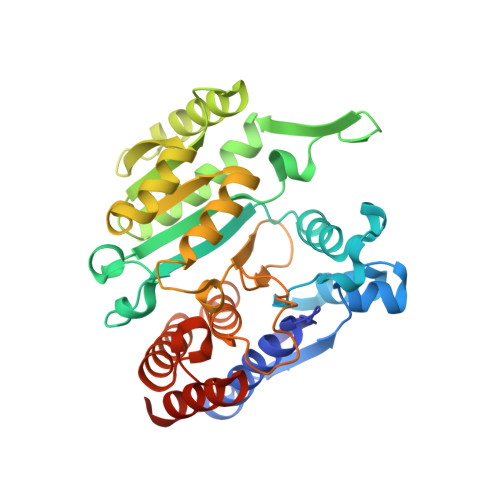Glutamate 270 plays an essential role in K(+)-activation and domain closure of Thermus thermophilus isopropylmalate dehydrogenase.
Graczer, E., Pallo, A., Olah, J., Szimler, T., Konarev, P.V., Svergun, D.I., Merli, A., Zavodszky, P., Weiss, M.S., Vas, M.(2015) FEBS Lett 589: 240-245
- PubMed: 25497013
- DOI: https://doi.org/10.1016/j.febslet.2014.12.005
- Primary Citation of Related Structures:
4WUO - PubMed Abstract:
The mutant E270A of Thermus thermophilus 3-isopropylmalate dehydrogenase exhibits largely reduced (∼1%) catalytic activity and negligible activation by K(+) compared to the wild-type enzyme. A 3-4 kcal/mol increase in the activation energy of the catalysed reaction upon this mutation could also be predicted by QM/MM calculations. In the X-ray structure of the E270A mutant a water molecule was observed to take the place of K(+). SAXS and FRET experiments revealed the essential role of E270 in stabilisation of the active domain-closed conformation of the enzyme. In addition, E270 seems to position K(+) into close proximity of the nicotinamide ring of NAD(+) and the electron-withdrawing effect of K(+) may help to polarise the aromatic ring in order to aid the hydride-transfer.
Organizational Affiliation:
Institute of Enzymology, Research Centre for Natural Sciences, Hungarian Academy of Sciences, Magyar tudósok krt. 2., H-1117 Budapest, Hungary.




















